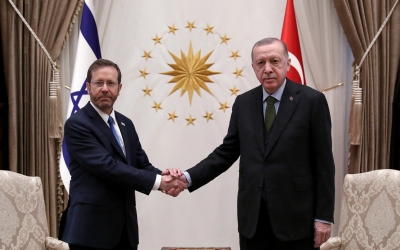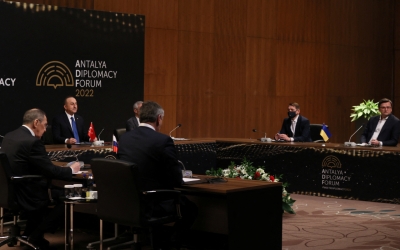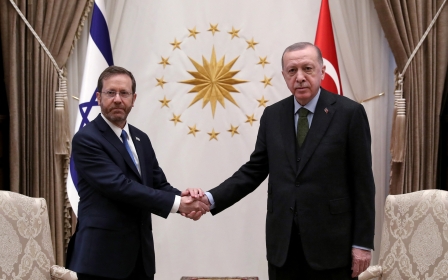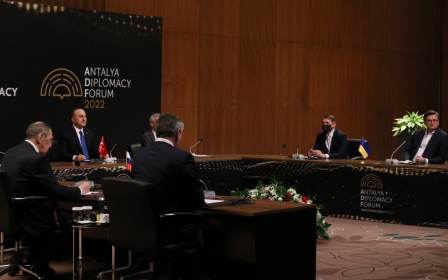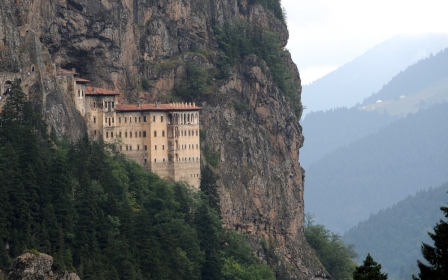Greek and Turkish leaders agree to improve ties amid backdrop of Ukraine war
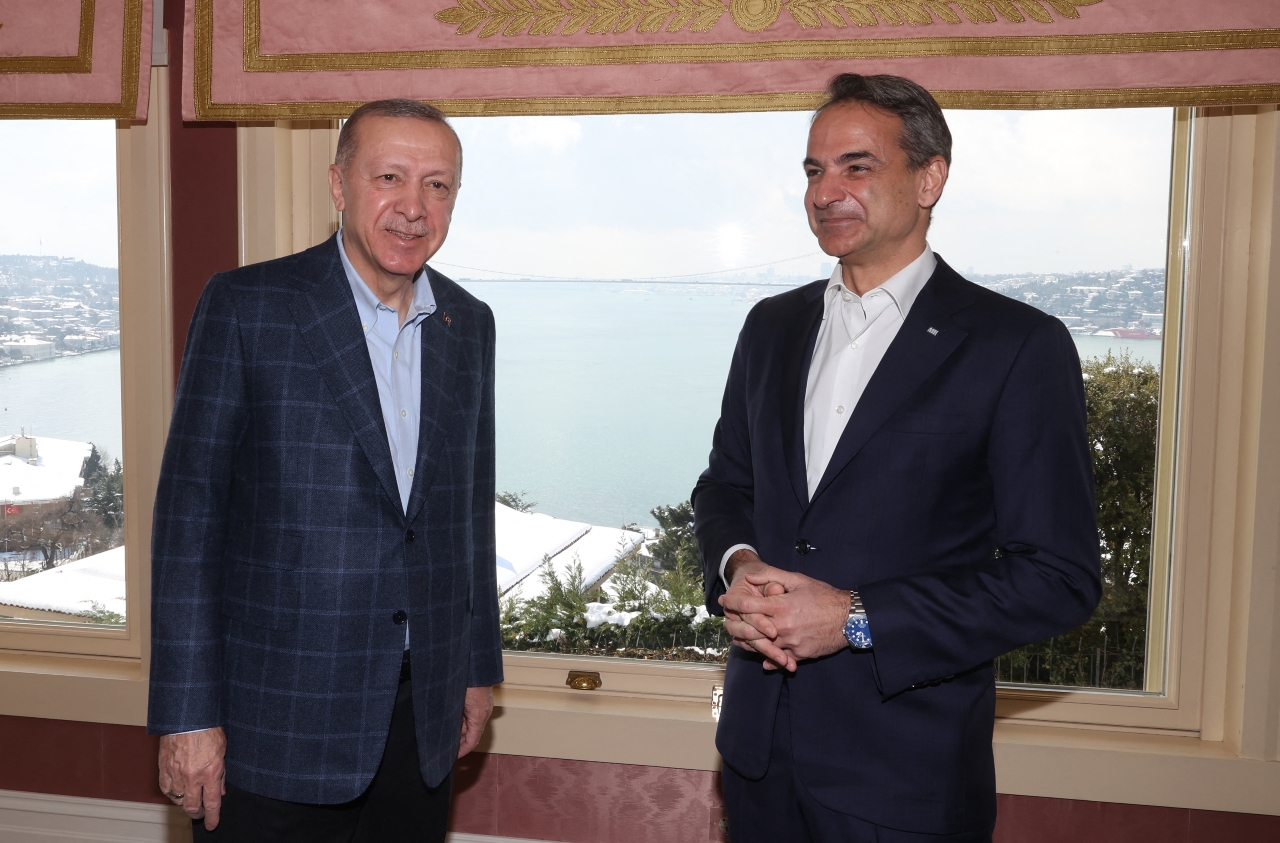
Turkish President Recep Tayyip Erdogan and Greek Prime Minister Kyriakos Mitsotakis have held talks in Istanbul, seeking a rapprochement against the backdrop of Russia's invasion of Ukraine.
"The meeting focused on the benefits of increased cooperation between the two countries" in view of "the evolution of the European security architecture," the Turkish presidency said in a statement after two hours of talks on Sunday.
"Despite the disagreements between Turkey and Greece, it was agreed... to keep the channels of communication open and to improve bilateral relations," the statement added, saying the two leaders discussed the conflict in Ukraine and their differences in the eastern Mediterranean.
"We are facing so many challenges at the moment... that the most important thing is to concentrate on what unites us rather than on what divides us," the Greek prime minister told journalists after the meeting.
"We stressed the need to forge a positive agenda," Mitsotakis said.
The meeting between the leaders of the neighbouring Nato members came as Ankara seeks to shore up its credentials as a regional power player by mediating in the conflict.
Last Thursday, the Turkish resort city of Antalya hosted the first talks between Russian Foreign Minister Sergei Lavrov and Ukrainian Foreign Minister Dmytro Kuleba since the start of Russia's invasion. However, they failed to broker a ceasefire.
'The world is changing'
"From the standpoint of both countries, having a potentially new crisis between them would certainly be very unwanted at this particular point in time," Sinan Ulgen, president of the Centre for Economics and Foreign Policy Studies in Istanbul, told AFP.
Greece and Turkey entered a dangerous stand-off in 2020 over hydrocarbon resources and naval influence in the waters off their coasts.
Mitsotakis then unveiled Greece's most ambitious arms purchase programme in decades and signed a defence agreement with France, to Turkey's consternation.
Senior Turkish officials continue to question Greek sovereignty over parts of the Aegean Sea, but last year Ankara resumed bilateral talks with Athens.
"Obviously, Turkey is pursuing a very clear wave of normalisation with regional rivals, after several years of having pursued a sort of very assertive foreign policy and being regionally isolated," Asli Aydintasbas, a fellow at the European Council on Foreign Relations, told AFP.
"I think that both Turkish and Greek leaders understand that the world is changing and the European security order is challenged in ways they have not imagined three months ago," she added.
This week, the Israeli president also visited Ankara after more than a decade of diplomatic rupture.
'Measured' expectations
Before his trip to Turkey, Mitsotakis had said he was heading there in a "productive mood" and with "measured" expectations.
"As partners in Nato, we are called upon... to try to keep our region away from any additional geopolitical crisis," he told a cabinet meeting on Wednesday.
Before lunch, Mitsotakis attended a celebration at the Orthodox St George's Cathedral, Turkey's largest, in Istanbul.
The Greek government spokesman this week said Mitsotakis was already due to visit the Istanbul-based Ecumenical Patriarch Bartholomew on Sunday and had been invited to lunch by Erdogan at the presidential mansion on the banks of the Bosphorus.
Bartholomew, who has said he is "a target for Moscow," called during the mass for an "immediate ceasefire on all fronts" in Ukraine.
In 2018, the patriarch recognised an independent Ukrainian Orthodox church, a huge blow to Moscow's spiritual authority in the Orthodox world.
On Sunday he praised the "vigorous resistance" of the Ukrainians and "the courageous reaction of Russian citizens".
Middle East Eye propose une couverture et une analyse indépendantes et incomparables du Moyen-Orient, de l’Afrique du Nord et d’autres régions du monde. Pour en savoir plus sur la reprise de ce contenu et les frais qui s’appliquent, veuillez remplir ce formulaire [en anglais]. Pour en savoir plus sur MEE, cliquez ici [en anglais].


